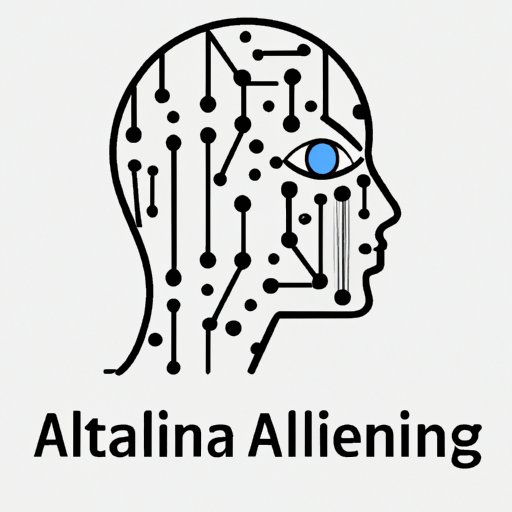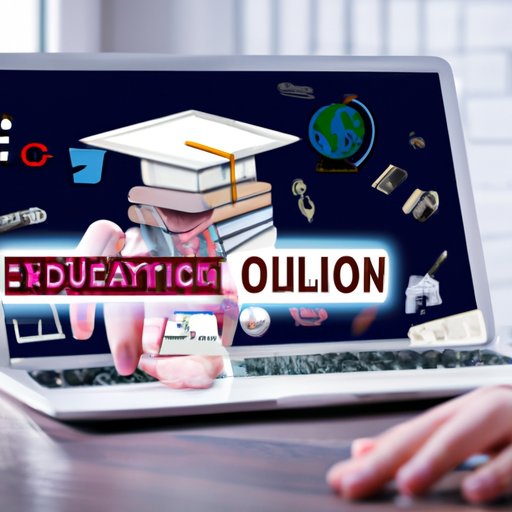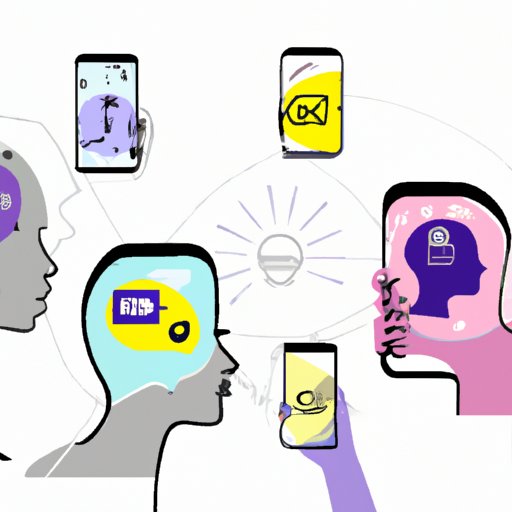Introduction
In today’s digital age, modern technology has become an integral part of our lives. From smartphones to social media, from automation to artificial intelligence, technology has had a profound impact on our society. While it has enabled us to achieve remarkable feats, it has also presented us with unique challenges. This article will explore the various ways in which modern technology affects society, both positively and negatively, and provide strategies for navigating these impacts.
Impact of Smartphones on Interpersonal Communication
Smartphones have revolutionized the way we communicate. According to a study by Pew Research Center, 77% of Americans now own a smartphone, and this number is only increasing. Smartphones have made communication easier and more convenient, allowing us to stay connected with loved ones regardless of distance. They have also enabled us to access a wealth of information quickly and easily.
However, there are certain challenges posed by smartphones when it comes to interpersonal communication. A study by researchers at Baylor University found that “smartphone users are less likely to engage in meaningful conversations with their family and friends than those who do not use smartphones.” The constant notifications and distractions can make it difficult to focus on conversations. Additionally, the reliance on text-based communication over face-to-face interaction can lead to misunderstandings and miscommunication.
To ensure meaningful conversations, it is important to limit distractions and be mindful of how we communicate. We should strive to use smartphones as a tool to enhance communication, rather than a substitute for it. Setting boundaries around when and how we use our phones can help minimize distractions and ensure that we are present and engaged when communicating with others.
Use of Social Media for Political Activism
Social media has become an increasingly powerful tool for political activism. It has enabled individuals to share their views and mobilize support for their causes in unprecedented ways. A study by the Institute for Public Relations found that “social media has played a major role in recent protest movements, such as the Arab Spring and Black Lives Matter.”
However, social media can also be used as a tool for misinformation and manipulation. Fake news and propaganda can be spread easily and quickly, making it difficult to distinguish between truth and falsehood. Additionally, the echo chambers created by algorithms can limit exposure to different perspectives and impede critical thinking.
To maximize the potential of social media as a tool for political activism, it is important to be aware of the risks posed by fake news and echo chambers. We should strive to stay informed and open-minded, and be mindful of the sources of information we consume. Additionally, we should use social media to encourage dialogue and debate, rather than simply reinforce our own opinions.
Increased Surveillance and Loss of Privacy
Modern technology has enabled governments and corporations to collect and store vast amounts of data on individuals. According to a report by the United Nations Human Rights Council, “the collection and analysis of personal data has enabled states to monitor and control populations on an unprecedented scale.” This has led to an increased sense of surveillance and a loss of privacy.
To protect our privacy, it is important to be aware of the data we are sharing and with whom we are sharing it. We should also take steps to encrypt our data and use secure networks whenever possible. Additionally, we should be mindful of the websites and apps we use, and read the terms and conditions carefully before agreeing to them.
Automation and Job Loss
Automation has enabled businesses to increase efficiency and reduce costs, but it has also had a significant impact on employment. According to a report by the World Economic Forum, “it is estimated that up to 75 million jobs could be displaced by automation by 2022.” This could have far-reaching implications for workers and economies around the world.
To minimize job loss due to automation, it is important to focus on reskilling and upskilling workers. Governments should invest in training programs to equip workers with the skills they need to succeed in the digital age. Additionally, businesses should prioritize hiring and retaining workers with the necessary skills and experience.

The Digital Divide and Access to Technology
The digital divide refers to the disparities in access to technology between different communities and countries. According to a report by the World Bank, “nearly 4 billion people still lack access to the internet and other digital technologies.” This limits their ability to take advantage of the opportunities afforded by modern technology.
To bridge the digital divide, it is important to focus on providing access to technology to underserved communities. Governments should invest in infrastructure and provide incentives for businesses to expand their operations into rural and low-income areas. Additionally, organizations should work to make technology more affordable and accessible to marginalized groups.

Artificial Intelligence and Machine Learning
Artificial intelligence (AI) and machine learning (ML) have the potential to revolutionize many aspects of our lives. From healthcare to transportation, AI/ML can enable us to achieve remarkable feats. However, there are certain challenges posed by AI/ML, such as the potential for misuse and bias.
To ensure responsible use of AI/ML, it is important to focus on transparency and accountability. We should strive to make AI/ML systems open and accessible, so that they can be monitored and regulated. Additionally, we should prioritize diversity and inclusion when developing AI/ML systems to minimize potential biases.

Online Education and the Future of Learning
Online education has enabled students to access educational resources from anywhere in the world. According to a survey conducted by the National Center for Education Statistics, “nearly 6 million students were enrolled in online courses in 2019.” This has opened up new opportunities for learning.
However, there are certain challenges posed by online education, such as the lack of face-to-face interaction and the difficulty of assessing student performance. To maximize the potential of online education, it is important to ensure quality and accessibility. We should strive to create engaging, interactive learning experiences and provide adequate support for students. Additionally, we should focus on providing equitable access to technology and resources.
Conclusion
Modern technology has had a profound impact on our society, both positively and negatively. While it has enabled us to achieve remarkable feats, it has also presented us with unique challenges. From smartphones to artificial intelligence, it is important to be aware of the potential impacts of modern technology and take steps to maximize its benefits while minimizing its pitfalls.
This article explored the various ways in which modern technology affects society and provided strategies for navigating these impacts. From smartphones to automation, and from social media to online education, it is important to be mindful of the potential benefits and challenges posed by modern technology and strive to use it responsibly.
It is clear that modern technology has revolutionized many aspects of our lives, and it is essential that we continue to explore its potential and take steps to ensure its responsible use. Only then can we truly reap the rewards of modern technology.
(Note: Is this article not meeting your expectations? Do you have knowledge or insights to share? Unlock new opportunities and expand your reach by joining our authors team. Click Registration to join us and share your expertise with our readers.)
